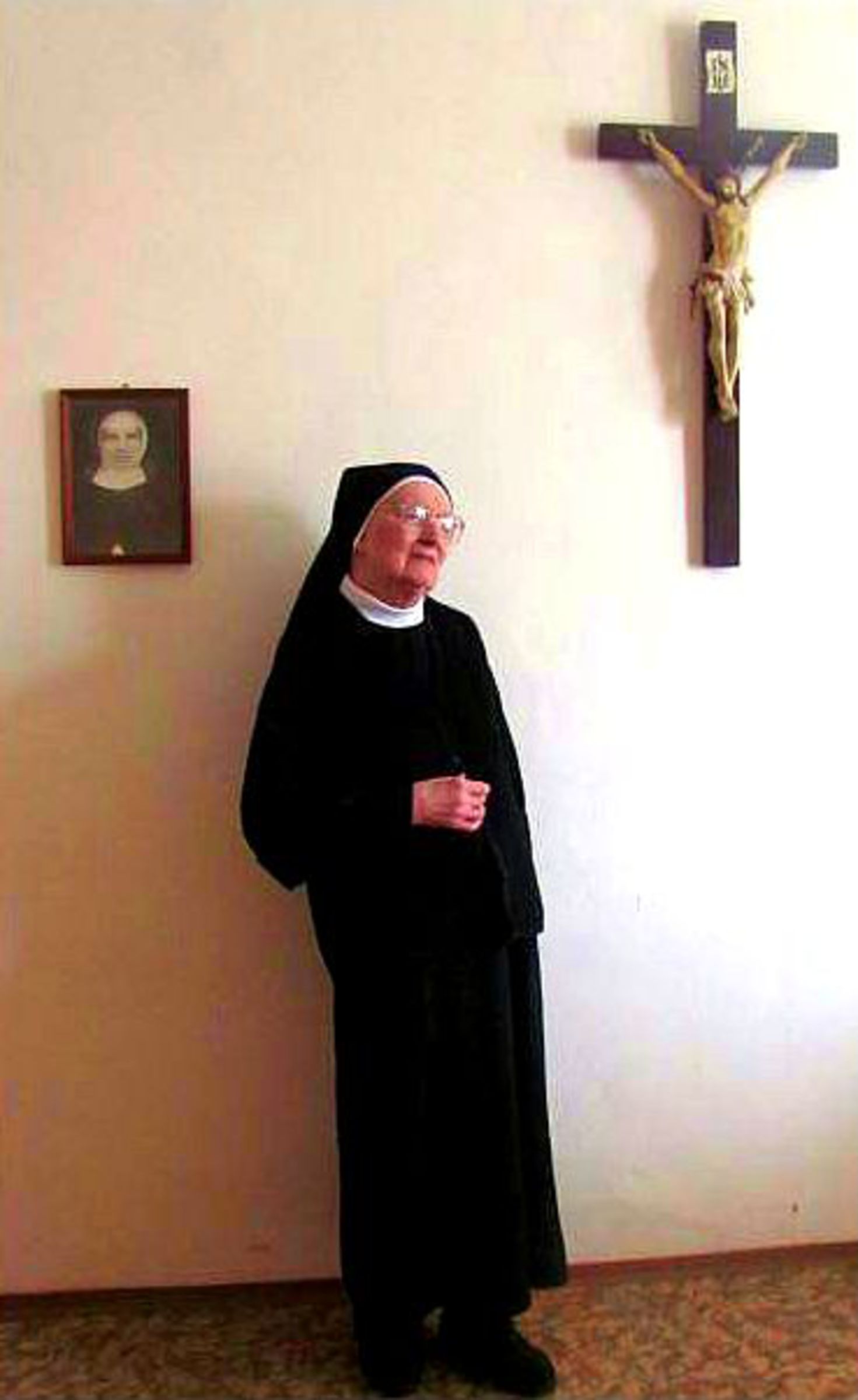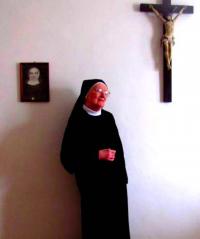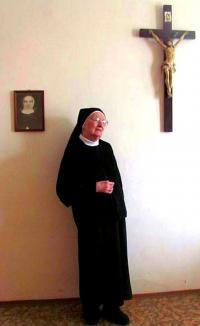Staying true to what a man chooses to do. God sees my steps and protects me!
Anežka Stránská was born on 28th December, 1922 in Dalečín in Vysočina. Later there were also two brothers together with her and an older sister. The parents were guiding their children to faith. Anežka went to school in Jimramov about six kilometres far from home. At the age of seventeen she left for a cloister in Rajhrad to the Congregation of the Consolatory Sisters of the Jesus Heart and accepted her religious name Bonifácie. That was already in 1939. During war she was active together with other sisters in Brno. The Sisters visited ill people in Czech and German families. At the end of was they returned to the cloister in Rajhrad. After war they helped those, who wished to emigrate. Their mother superior, Marie Vintrová, was sentenced by the communist regime for this activity in a construed process to seventeen years in prison. Other sisters were then moved to Teplice in Bohemia, where she worked in a hospital. In 1950s fifty sisters all threw clean papers into an election urn, they transferred them to a ruined formed collection camp Pod Doubravkou. All local priests were forbidden to serve holy mass for the sisters under the threat of loss of state approval. Until 1980s the sisters were closely observed by the secret police and by the church secretaries. The sister Bonifácie lives in Rajhrad.


